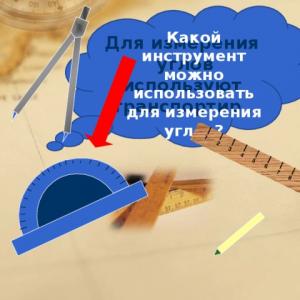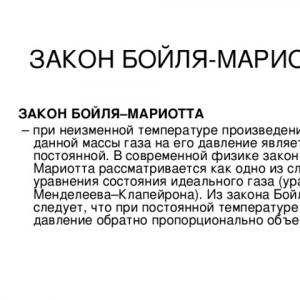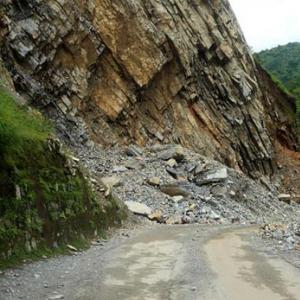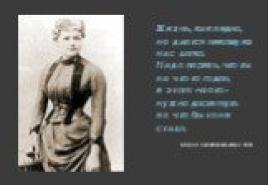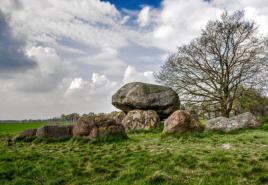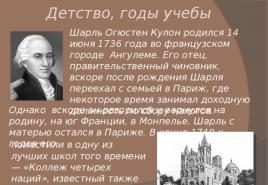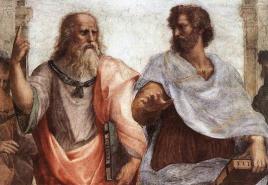Ancient Russia with my own eyes: the battle of a thousand swords will be shown in “Kolomenskoye. Ancient Russia with your own eyes: the battle of a thousand swords will be shown in Kolomenskoye From "Prince's Camp" to "Byzantium"
Muscovites will be able to immerse themselves in the era of Ancient Russia of the 9th-11th centuries this summer: on June 11-12, the Kolomenskoye Museum-Reserve will host the sixth historical festival of the series "Times and Epochs".
"Times and Epochs" is a cycle of historical festivals, each of which is dedicated to a particular era. The program started in 2011 with a festival dedicated to Ancient Russia: for 3 days Muscovites enjoyed an unusual holiday for Moscow and were very pleased. In 2012, the theme of the festival was the Moscow Kingdom of the Time of Troubles, 2013 was dedicated to Medieval Europe, and 2014 - to the beginning of the 20th century and the First World War; in 2015, Ancient Rome and Antiquity were presented at the festival - over 5 years of the festival, "Times and Epochs" from a local event turned into a major international event, attracting a large number of tourists from the regions of Russia and foreign countries.
In 2016, the wheel of history made a turn, and the theme of the festival, like 5 years ago, again became Ancient Russia and the Viking Age.
Festival venues
The territory of the festival "Times and Ages. Battle of a Thousand Swords" will not be limited to the main locations, but will consist of mini-spaces with thematic workshops and games, performances, music programs and stories about the life and culture of different nations.
Visitors will be able to visit such thematic sites as "Princely camp" (the rate of the defenders of the Russian land), "Viking Borg" (village of the northern barbarians), "Finno-Ugric and Balts" (capture of hunters and pastoralists) and "Steppe" (nomad camp with yurts). An authentic program has been prepared for each of them: in the "Prince's Camp" you will be able to watch the guard service and training of Russian knights, in the "Borg of the Vikings" - to get acquainted with the Scandinavian rituals and war games, in the "Steppe" - to see the life of nomads and horse training of the steppe dwellers ...
Area "Slavs" will acquaint the guests of the festival with the peculiarities of agriculture of the Slavs in the early Middle Ages, and "Posad" - with the life of the townspeople, which will unfold in the form of theatrical scenes.
For the first time since 2012, boats will moor to the pier: shipbuilders will present visitors with lectures and master classes on Viking Age maritime and fishing.
Of course, it will be equipped and Marketplace:this year it will be held on a special scale and will become the center of a theatrical and musical program that will immerse guests in the atmosphere of an ancient Russian fair.
Combat program
For the festival "Times and Epochs. Battle of a Thousand Swords" a grandiose combat program has been developed, including war games (wolf, rings of glory), training and tournaments.
The plot lines of the festival reflect the historical events of a thousand years ago - the princely civil strife and the struggle with the steppe nomads. The highlight will be the largest battle in the history of Russian reconstruction: for 2 days, the Russians, Vikings and steppe dwellers will fight in "Battle of a Thousand Swords" according to which the festival got its name this year.
Festival work
Festival "Times and Epochs. Battle of a Thousand Swords" will be held at the Kolomenskoye Museum-Reserve on June 11-12, 2016.
On July 15 in Moscow, the Kolomenskoye Museum-Reserve will host the "Battle of a Thousand Swords. Ragnarok 2017" festival.
The festival "Battle of a Thousand Swords. Ragnarok 2017" will be held at the Dyakov settlement in the Kolomenskoye park from 11 am. It is worth buying tickets in advance, because a large number of Muscovites and guests of the capital are expected. Tickets cost 3000 rubles. On July 15, 2017, Moscow will host a unique event "Battle of a Thousand Swords. Ragnarok", which will take you to the era of Medieval Russia and you will personally take part in military battles between the Russian prince and the king of the Vikings.
Epoch
The period of the 9th-11th centuries is known as the era of the Vikings, Scandinavian warriors and sea robbers. They terrified the entire medieval ecumene from England to Byzantium - they plundered and fought, besieged cities, installed their rulers. The Vikings were famous for their valor, so they were willingly hired by both Russian princes and Byzantine Basileus. For Russia, the 9th – 11th centuries is the beginning of the state, the time of princely strife, the adoption of Christianity, the struggle for dominance in Eastern Europe and the Black Sea region. This is the heyday of the trade Route from the Varangians to the Greeks, the campaigns against Byzantium and the defeat of the Khazar Kaganate.
About the festival "Battle of a Thousand Swords. Ragnarok 2017" in Kolomenskoye
The organizers of the festival are Ratobortsy Agency of Ancient Entertainment LLC, which promise many interesting surprises for the guests.
The program of the festival "Battle of a Thousand Swords. Ragnarok 2017" in Kolomenskoye includes:
- military operations: a large-scale battle, a competition between a Russian prince and a king, a speech by commanders, a battle of warriors on boats, horse racing;
- preparation for war: making weapons, reconstructing battle shields, creating chain mail, training in sword fighting;
- peaceful entertainment: playground for children, live music throughout the festival, theatrical scenes from the everyday life of Ancient Rus, merchants.
Battle of a Thousand Swords
It has just dawned, a thick fog still covers the ground. Hundreds of great warriors enter the field, they stand shoulder to shoulder, ready to defend their homeland from the treacherous enemy. Their helmets and spearheads shine brightly in the rays of the rising sun. The wind tugs at banners and standards, the morning cold stings through the heavy armor.
Warriors fully armed. Everyone's heart pounds wildly, driving the blood boiling away, weathered faces are focused, and trained bodies are ready for a fierce fight. Experienced, tenacious gazes are already aimed at the enemy. No one will be spared.
A great battle is about to begin, the clink of sharply sharpened swords will be heard, echoing and mixing with screams of rage and pain. This is a battlefield, where there is no place for cowardice, where only faith in victory and courage remain, where many are destined to lay down their heads for a just cause.
Intrigued? Do you want to plunge into the atmosphere of Ancient Russia and find yourself in the thick of things?
After all, Ancient Russia is the beginning of the Russian state, the Russian faith, chronicles and our first saints. It will be possible to travel back to the millennium and see the formation of the Russian state at the unique historical festival “Times and Epochs. Battle of a Thousand Swords. " It will take place at the Kolomenskoye Museum-Reserve on June 11 and 12.
Holding such festivals has already become a good tradition. The first "Times and Epochs" took place in 2011. They were dedicated to Russia in the 9th-11th centuries and were remembered for their powerful energy and daring.
And if that debut event "Ancient Russia with Your Own Eyes" gathered 1200 participants from 11 countries, and 46 cities represented Russia at this holiday, then in 2015 the festival had 2450 participants.
Now an even more grandiose event awaits us - battle of a thousand swords, the largest battle of the early Middle Ages in Russia. Hundreds of fighters will clash in wolf, rings of glory and tournaments for rich rewards. For two days, the Russians, steppe dwellers and Vikings will fight in the largest battle in the history of Russian reconstruction.
The festival, organized by the Moscow Government (Department of National Policy, Interregional Relations and Tourism of the City of Moscow) and the Ratobortsy historical projects agency, will be attended by about 2,500 people. Representatives of other countries will also be present - Norway, Sweden, Denmark, Germany, France, Poland, Serbia, Lithuania, Latvia, Belarus, Estonia, Ukraine, USA, Great Britain, Bulgaria.
.jpg)
.jpg)
.jpg)
From "Prince's camp" to "Byzantium"
The following venues will await guests.
— "Prince's camp" - the headquarters of the defenders of the Russian land, where guests will watch the guard service, the training of the knights and the review of the squad by the voivode. A falconry will also operate here.
— "Viking Borg" - the village of ferocious northern barbarians. Here, the Vikings will demonstrate Scandinavian rituals, crafts, war games and military training under the guidance of huscarls and jarl.
— "Balts and Finno-Ugrians" - capture of skillful hunters, herders with northern animals and artisans. They will show the traditional crafts of the ancient peoples of the Baltic: processing amber, chasing Baltic jewelry, applying characteristic ornaments on bronze items, assembling belts, and carving on bone. The Balts will arrange for themselves an altar, around which rituals dedicated to mother earth and the forces of nature will be performed every day.
— "Steppe" - a camp of nomads with semi-dugouts and a hitching post. Visitors will be introduced to everyday life, the basics of horse dressage, horse games and training of the steppe people.
Guests will find representatives of the great empire on the site "Byzantium"... Diploma nobles with guards and servants will come to negotiations with the Russian prince. Visitors will listen to the Greek choir, watch the exercises of the Byzantine warriors, and take calligraphy lessons.
On the site "Slavic settlement" will reveal the features of agriculture of the Slavs in the early Middle Ages. There will be houses, a barn and cattle pens. The villagers will hold traditional wedding and agricultural ceremonies. Slavs will sit on the embankment with handicrafts, accompanying the work with songs. And their husbands will work in a smithy and a pottery workshop, sharpen scythes and mend agricultural implements, telling about them to the guests of the settlement.
IN "Posada" viewers will learn about the life of the townspeople, early medieval scenes will unfold before them, for example, honoring the prince. Here courts will be held in accordance with "Russian Truth" by Yaroslav the Wise, the princes' decrees will be spoken by priest (herald). The site will be located behind a palisade and a six-meter tower.
On the site "Normandy" guests will see the era of the origin of chivalry - the XI century. This is the military camp of the Norman Duke William the Conqueror after the decisive battle of Hastings, where he defeated the Anglo-Saxons. Warriors will prepare for a new campaign and make throwing machines.
.jpg)
.jpg)
.jpg)
Old Russian boats, marketplace and "Bylina-fest"
TO "Pier" will moor boats, which has not happened since 2012. The sailors will offer guests lectures and master classes on Viking Age maritime affairs: weaving ropes and nets, fishing, and processing ship parts.
In the camp "Gardarika" the Vikings who entered the service of the Russian prince will rise. They will lead a measured life and will be engaged in blacksmithing, natural dyeing of fabrics, make a runestone, and cook Scandinavian dishes.
Torgishche this year it will be arranged on a special scale and will become the center of a theatrical and musical program that will immerse visitors in the atmosphere of an ancient Russian fair. Guests can stroll among the long rows of furs and fish, dishes and honey from beads, fabrics and jewelry. Nicky craftsmen will carve bone and wood, make pottery, and forge iron. Guests will taste ancient Russian dishes and have a snack with bread baked right there.
Also within the framework of "Times and Epochs" will open a vast play space, united by the theme of the Russian epic "Bylina-fest" - a new format for a playground, a festival within a festival. Half-forgotten heroes will work with the guests of the Bylina-fest: the giant Svyatogor, the stalwart plowman Mikula Selyaninovich, the werewolf and the sorcerer Volkh Vseslavievich.
There is no doubt that this celebration will not leave anyone indifferent. Neither adults nor children will be bored at the festival.
There are many games and hobby activities prepared for young guests. These are old Russian games: "spillikins", "hemp", "grab the stick", "take away the string".
Craftsmen will show the manufacture of plinths - thin fired bricks from which houses and temples were built in Ancient Rus.
Round dances will be held, and songs will sound to the harmony of the wise Sadko.
Az, beeches, vedi, verb and sword-kladenets
A school of reading and writing and calligraphy will open: here they will teach you how to write Greek, Latin and Old Russian words.
Children will be offered to make an archaeological excavation, where they can open a trinket and keep it for themselves.
It will be possible to participate in the construction of Veliky Novgorod from straw and wooden houses.
Under the leadership of m Svyatogor, the campaign of the childish army will begin on the camps and villages of "Times and Epochs".
There will also be a photo point with Mikula's huge plow and a sword-kladenets.
By good tradition, Times and Epochs will not be limited to the main venues. The festival will consist of mini-spaces with thematic workshops, performances, music programs and informative stories about the life and culture of different peoples and social strata.
Believe me, you will spend two unforgettable days in Ancient Russia!
In conclusion, it remains to note that event tourism is now rapidly developing in Moscow, causing a lively and genuine interest among tens of thousands of tourists from different cities of Russia and foreign countries. And if we talk about the total number of planned holiday summer events and festivals this year, then we can say with confidence - this summer will be "hot".
You just have to follow the schedule of festivals and try not to miss these wonderful holidays.
"Travel to the past is possible.
You just have to be in the right place at the right time. "
A few days ago in the architectural museum-reserve "Kolomenskoye" (Moscow), a unique in its scale festival of military-historical reconstruction "Ancient Rus. Battle of 1000 swords. " Such events within the framework of the "Times and Epochs" project have been held for several years in a row, and this year the storyline of the festival was dedicated to the period of Kievan Rus, i.e. reconstruction of weapons and equipment of the soldiers of the ancient Russian lands and their neighbors in the era - the Vikings, nomads, Byzantium, etc. In total, this event lasted for several days, but for free visits to the public were opened on June 11 and 12.
The territory of the museum park was divided into several sectors, in each of which were presented the life and crafts of a certain people, as well as the types of soldiers characteristic of them.

In the center of the park, creating a mutual connection, there was "Torzhische" - the place of a fun fair, where ancient Russians, Scandinavian, Byzantine and Oriental merchants offered various goods to the guests of the festival (although it was decided to exclude such detail as a slave market with naked slaves from the reconstruction ).

Between the battlefield and the "Torzhishche" was the "Varangian Borg" - a battle camp of fierce Viking mercenaries who retained their faith in their ancient gods and decided to offer their services as warriors to the Russian prince.

To the left is the "Tabor of the Steppe", where one could see the life of the dashing inhabitants of the Wild Field and the southern ancient Russian borderlands, who this time came for peaceful trade.

Nearby was the "Byzantine Embassy" - the camp of the imperial aristocrats and their warriors who arrived to negotiate with the Russian prince.
On the other side of the "Torzhishche" was the "Camp of the Balts and Finno-Ugrians", in which one could see their ancient temple, as well as, for example, master carvers of amber and bone.

At a distance there was a huge "Prince's Camp" - the main camp of the Russian prince's warriors, where one could see a huge variety of foot and horse soldiers of the period of Kievan Rus.

Adjacent to it was the camp of Vikings and other European mercenaries in the service of the Russian prince and professing the Christian faith - "Gardarika".

Nearby was the "Norman camp" - the camp of the warriors of Duke William the Conqueror, who came to Russia for negotiations from distant France.
Well, on the other side of the "Torzhishch" adjoined "Posad", which included the reconstruction of a medieval artisan suburb and Finno-Ugric and Slavic rural settlements.

On the Moskva River, one could see an ancient Russian pier with boats of Slavs and Vikings, who suddenly, without sharing something, could turn from peaceful shipbuilders-merchants into formidable warriors, and engage in battle with each other.

The main zone of the whole festival, of course, was the "Battlefield", where for several days equestrian competitions were held and huge armies of ancient warriors converged in sparkling armor.

It was amazing to see a variety of equestrian warriors - both Russians and steppe dwellers who participated in equestrian fights and amazed the audience with their martial art. For example, on each day a game of "goat-breaking" was held (when riders of different teams had to throw the carcass of a goat into the enemy's gate, while the participants were allowed to actively use whips against each other), a very ancient tradition that is still alive among the nomadic peoples of Central Asia ...

For those who were tired, from the carts of food supplies, one could refresh themselves with kvass, mead and beer brewed according to traditional recipes (of course, at Moscow prices), or refresh their strength with delicacies of venison, wild boar and bear meat, having a bite of this fragrant baked in the oven for old Russian recipe, bread!

Perhaps it is simply difficult to find the best event for those who love their country, appreciate our country, and especially for young people. One such festival, with full immersion in the era of Ancient Russia, replaces dozens of school history lessons and provides excellent examples for military-patriotic education!

